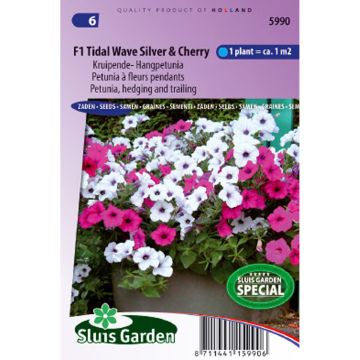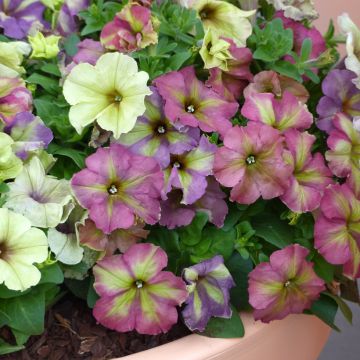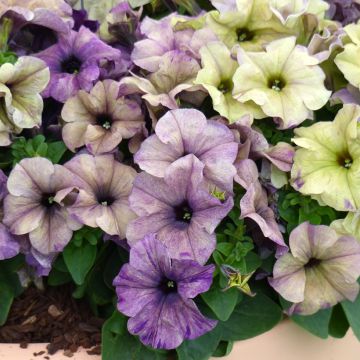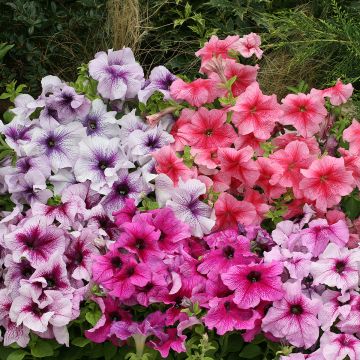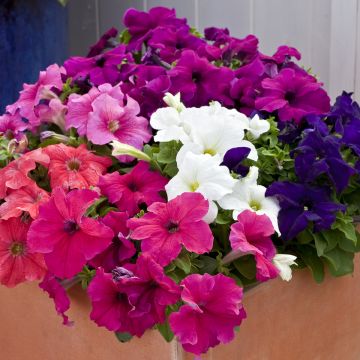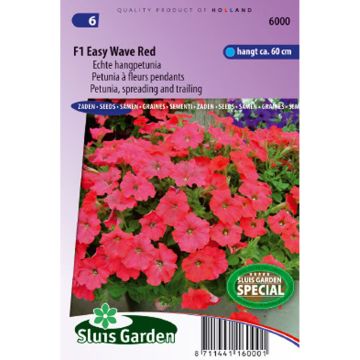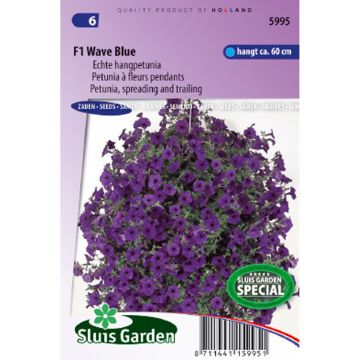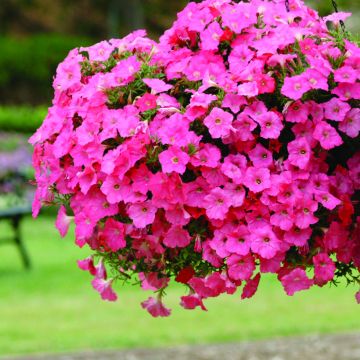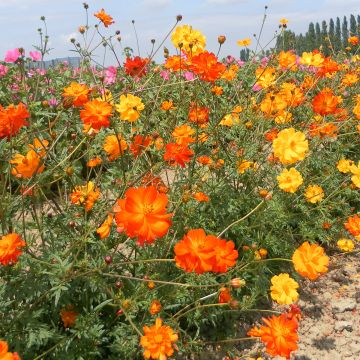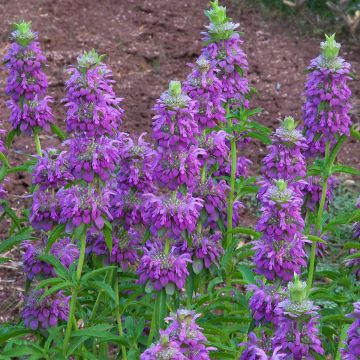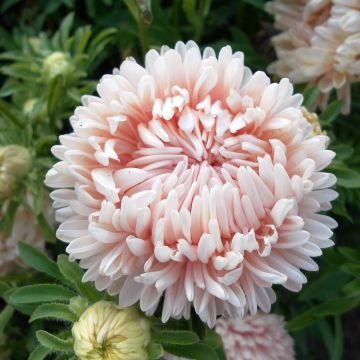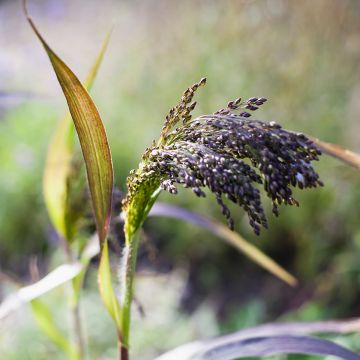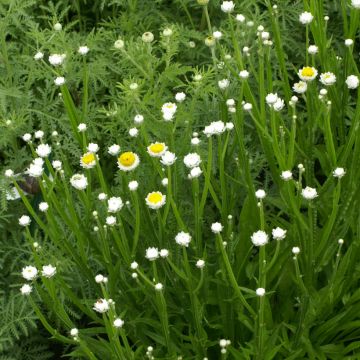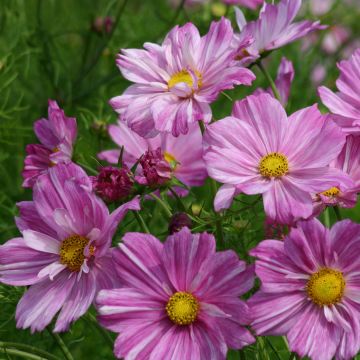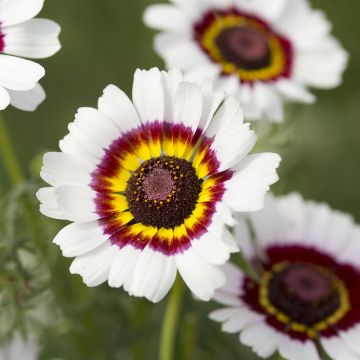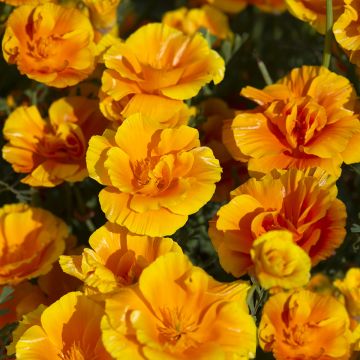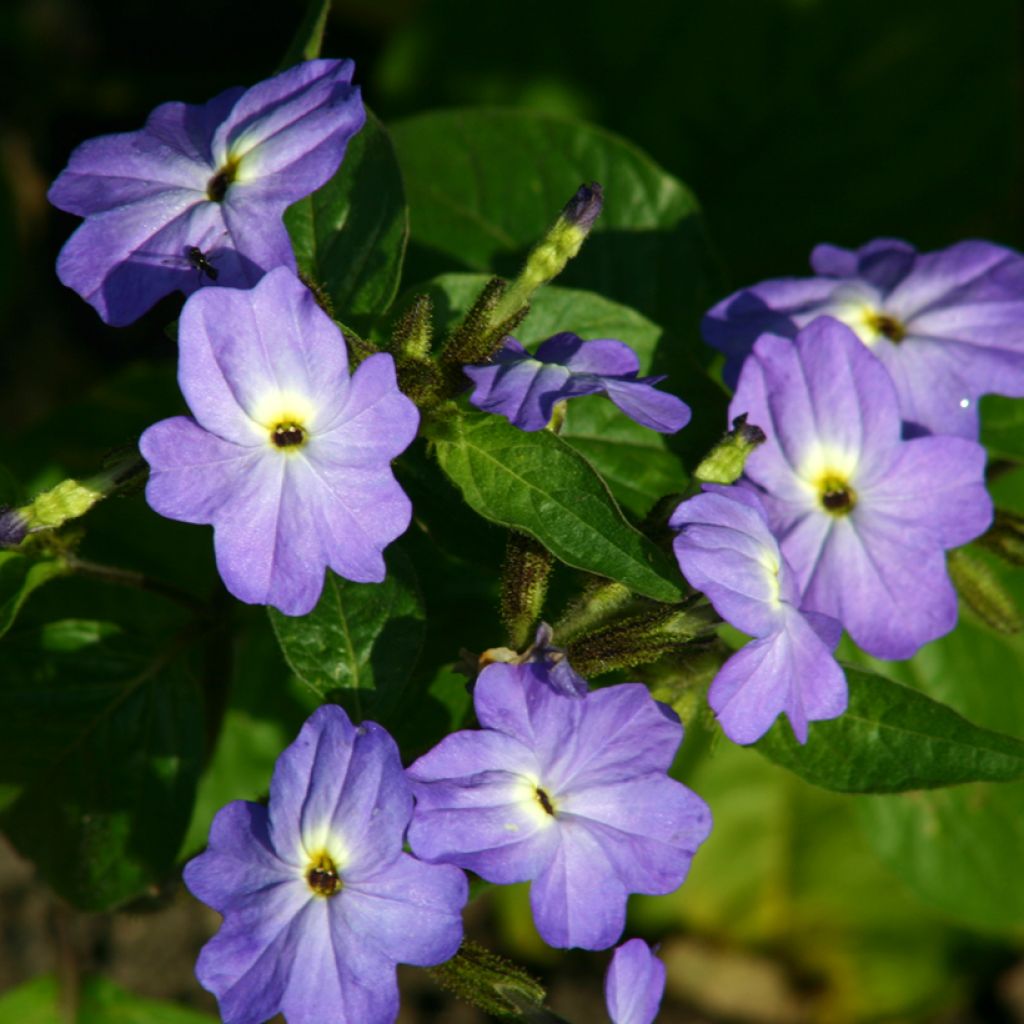

Browallia americana Blue Lady seeds - Jamaican forget-me-not
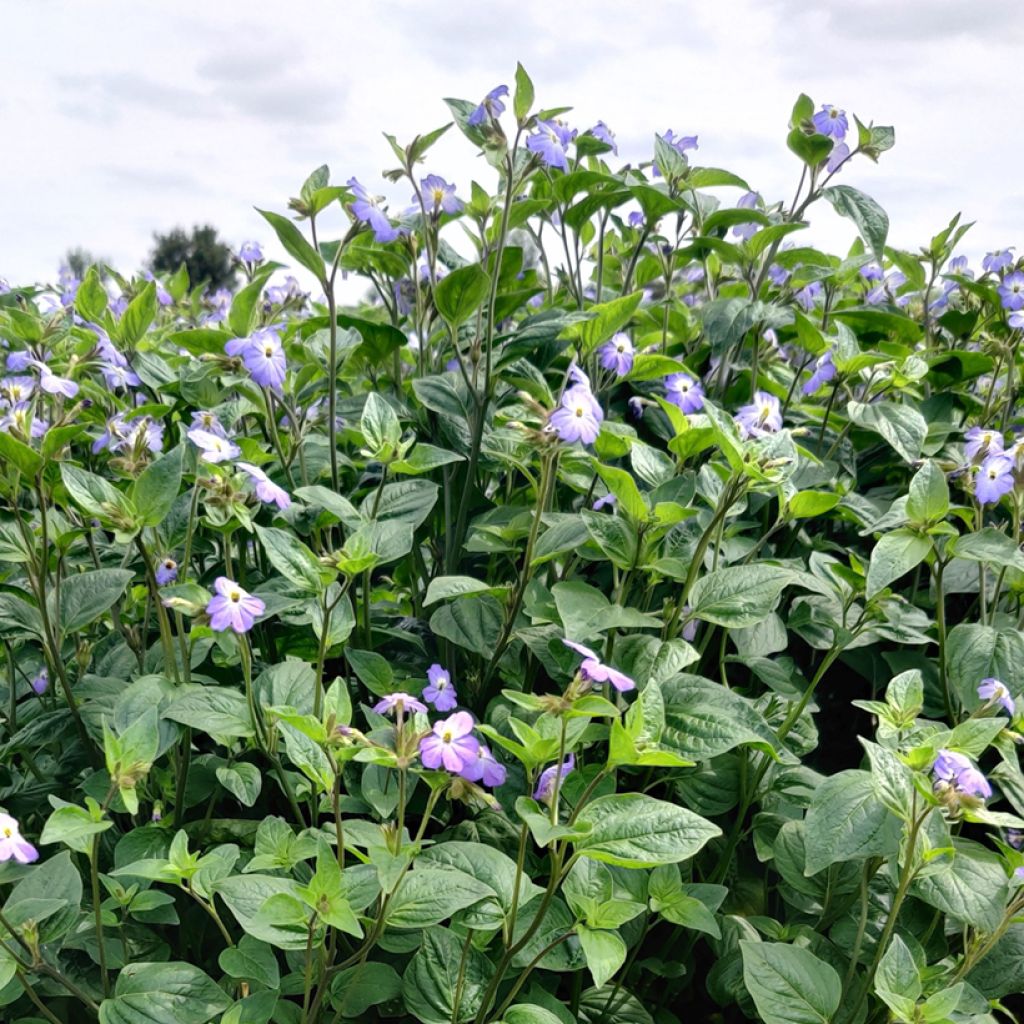

Browallia americana Blue Lady seeds - Jamaican forget-me-not
Browallia americana Blue Lady seeds - Jamaican forget-me-not
Browallia americana Blue Lady
Jamaican forget-me-not, Amethyst flower, Bush violet
Special offer!
Receive a €20 voucher for any order over €90 (excluding delivery costs, credit notes, and plastic-free options)!
1- Add your favorite plants to your cart.
2- Once you have reached €90, confirm your order (you can even choose the delivery date!).
3- As soon as your order is shipped, you will receive an email containing your voucher code, valid for 3 months (90 days).
Your voucher is unique and can only be used once, for any order with a minimum value of €20, excluding delivery costs.
Can be combined with other current offers, non-divisible and non-refundable.
Home or relay delivery (depending on size and destination)
Schedule delivery date,
and select date in basket
This plant carries a 6 months recovery warranty
More information
We guarantee the quality of our plants for a full growing cycle, and will replace at our expense any plant that fails to recover under normal climatic and planting conditions.
Would this plant suit my garden?
Set up your Plantfit profile →
Description
Browallia americana 'Blue Lady' is a annual plant with moderate growth that produces a long-lasting, delightful flowering in shades of blue during summer. It is worth growing for its generous and delicate star-shaped flowers in light blue-violet with a white and light blue centre, blooming from July until the first frosts, on dark green foliage and branching stems. The faded flowers detach cleanly, making way for a continuous renewal of small flowers. It is ideal for flower beds, borders, containers, and pots.
Browallia americana belongs to the Solanaceae family, like tomatoes and aubergines. All species of the genus are native to tropical to temperate regions of America. In our climatic zones, they are grown as annual plants. The medium to dark green leaves can be smooth or hairy, sessile or connected to the stems with short petioles. They measure between 6 and 9 cm and have a triangular, entire or lanceolate shape, always with visible veins in a darker shade. 'Blue Lady' is a perennial herbaceous plant that forms a bushy clump of 30 to 40 cm in all directions. Its star-shaped flowers, with fused sepals and petals, measure 2 cm in diameter. The fruits of browallias are round or elongated capsules of 4 to 6 mm containing between 10 and 45 seeds.
Browallia americana 'Blue Lady' is easy to grow in full sun or partial shade, in ordinary garden soil. Plant it in large pots or hanging baskets. You can also place it in flower beds to punctuate perennial plant borders. Its elegant and light habit and delightful flowering, pair well with other annuals like Convolvulus tricolor 'Royal Ensign' or Impatiens.
Attention, seeds reserved for experienced gardeners accustomed to sowing very fine seeds. These seeds are as fine as dust, barely visible to the naked eye.
Report an error about the product description
Flowering
Foliage
Plant habit
Botanical data
Browallia
americana
Blue Lady
Solanaceae
Jamaican forget-me-not, Amethyst flower, Bush violet
Cultivar or hybrid
Other Petunia seeds
View all →Planting and care
Sow Browallia americana Blue Lady seeds in March-April at 18-20°C, in a tray, spreading the seeds on the surface of good seed compost. Do not cover the seeds, or barely cover them, but make them cling to the substrate by a single press. Keep the soil moist but not waterlogged. Keep the sowing in the light, in a tight transparent plastic bag. Germination usually takes 10 to 21 days. When the seedlings are large enough to handle, transplant them into pots and let them develop in cooler conditions. For 10 to 15 days, gradually acclimatise them to outdoor conditions, then, when all risk of frost is passed, plant them in the ground, spacing the plants 20 to 30 cm apart.
Sowing period
Intended location
This item has not been reviewed yet - be the first to leave a review about it.
Similar products
Haven't found what you were looking for?
Hardiness is the lowest winter temperature a plant can endure without suffering serious damage or even dying. However, hardiness is affected by location (a sheltered area, such as a patio), protection (winter cover) and soil type (hardiness is improved by well-drained soil).

Photo Sharing Terms & Conditions
In order to encourage gardeners to interact and share their experiences, Promesse de fleurs offers various media enabling content to be uploaded onto its Site - in particular via the ‘Photo sharing’ module.
The User agrees to refrain from:
- Posting any content that is illegal, prejudicial, insulting, racist, inciteful to hatred, revisionist, contrary to public decency, that infringes on privacy or on the privacy rights of third parties, in particular the publicity rights of persons and goods, intellectual property rights, or the right to privacy.
- Submitting content on behalf of a third party;
- Impersonate the identity of a third party and/or publish any personal information about a third party;
In general, the User undertakes to refrain from any unethical behaviour.
All Content (in particular text, comments, files, images, photos, videos, creative works, etc.), which may be subject to property or intellectual property rights, image or other private rights, shall remain the property of the User, subject to the limited rights granted by the terms of the licence granted by Promesse de fleurs as stated below. Users are at liberty to publish or not to publish such Content on the Site, notably via the ‘Photo Sharing’ facility, and accept that this Content shall be made public and freely accessible, notably on the Internet.
Users further acknowledge, undertake to have ,and guarantee that they hold all necessary rights and permissions to publish such material on the Site, in particular with regard to the legislation in force pertaining to any privacy, property, intellectual property, image, or contractual rights, or rights of any other nature. By publishing such Content on the Site, Users acknowledge accepting full liability as publishers of the Content within the meaning of the law, and grant Promesse de fleurs, free of charge, an inclusive, worldwide licence for the said Content for the entire duration of its publication, including all reproduction, representation, up/downloading, displaying, performing, transmission, and storage rights.
Users also grant permission for their name to be linked to the Content and accept that this link may not always be made available.
By engaging in posting material, Users consent to their Content becoming automatically accessible on the Internet, in particular on other sites and/or blogs and/or web pages of the Promesse de fleurs site, including in particular social pages and the Promesse de fleurs catalogue.
Users may secure the removal of entrusted content free of charge by issuing a simple request via our contact form.
The flowering period indicated on our website applies to countries and regions located in USDA zone 8 (France, the United Kingdom, Ireland, the Netherlands, etc.)
It will vary according to where you live:
- In zones 9 to 10 (Italy, Spain, Greece, etc.), flowering will occur about 2 to 4 weeks earlier.
- In zones 6 to 7 (Germany, Poland, Slovenia, and lower mountainous regions), flowering will be delayed by 2 to 3 weeks.
- In zone 5 (Central Europe, Scandinavia), blooming will be delayed by 3 to 5 weeks.
In temperate climates, pruning of spring-flowering shrubs (forsythia, spireas, etc.) should be done just after flowering.
Pruning of summer-flowering shrubs (Indian Lilac, Perovskia, etc.) can be done in winter or spring.
In cold regions as well as with frost-sensitive plants, avoid pruning too early when severe frosts may still occur.
The planting period indicated on our website applies to countries and regions located in USDA zone 8 (France, United Kingdom, Ireland, Netherlands).
It will vary according to where you live:
- In Mediterranean zones (Marseille, Madrid, Milan, etc.), autumn and winter are the best planting periods.
- In continental zones (Strasbourg, Munich, Vienna, etc.), delay planting by 2 to 3 weeks in spring and bring it forward by 2 to 4 weeks in autumn.
- In mountainous regions (the Alps, Pyrenees, Carpathians, etc.), it is best to plant in late spring (May-June) or late summer (August-September).
The harvesting period indicated on our website applies to countries and regions in USDA zone 8 (France, England, Ireland, the Netherlands).
In colder areas (Scandinavia, Poland, Austria...) fruit and vegetable harvests are likely to be delayed by 3-4 weeks.
In warmer areas (Italy, Spain, Greece, etc.), harvesting will probably take place earlier, depending on weather conditions.
The sowing periods indicated on our website apply to countries and regions within USDA Zone 8 (France, UK, Ireland, Netherlands).
In colder areas (Scandinavia, Poland, Austria...), delay any outdoor sowing by 3-4 weeks, or sow under glass.
In warmer climes (Italy, Spain, Greece, etc.), bring outdoor sowing forward by a few weeks.






























